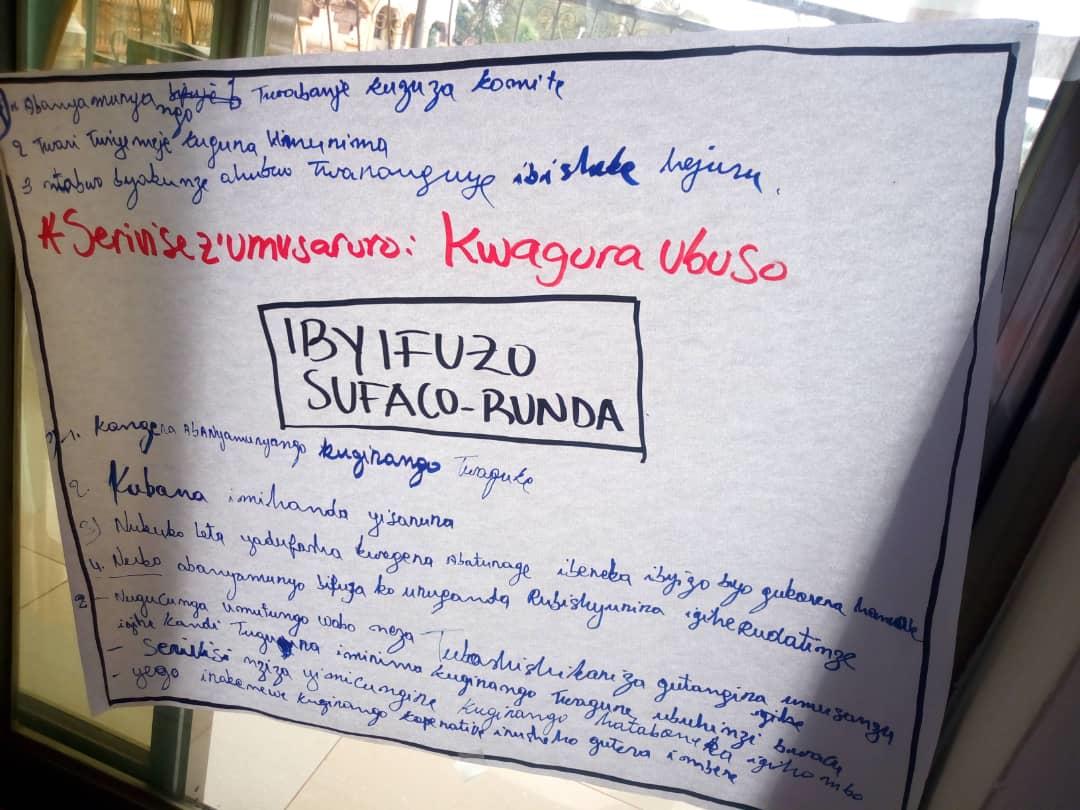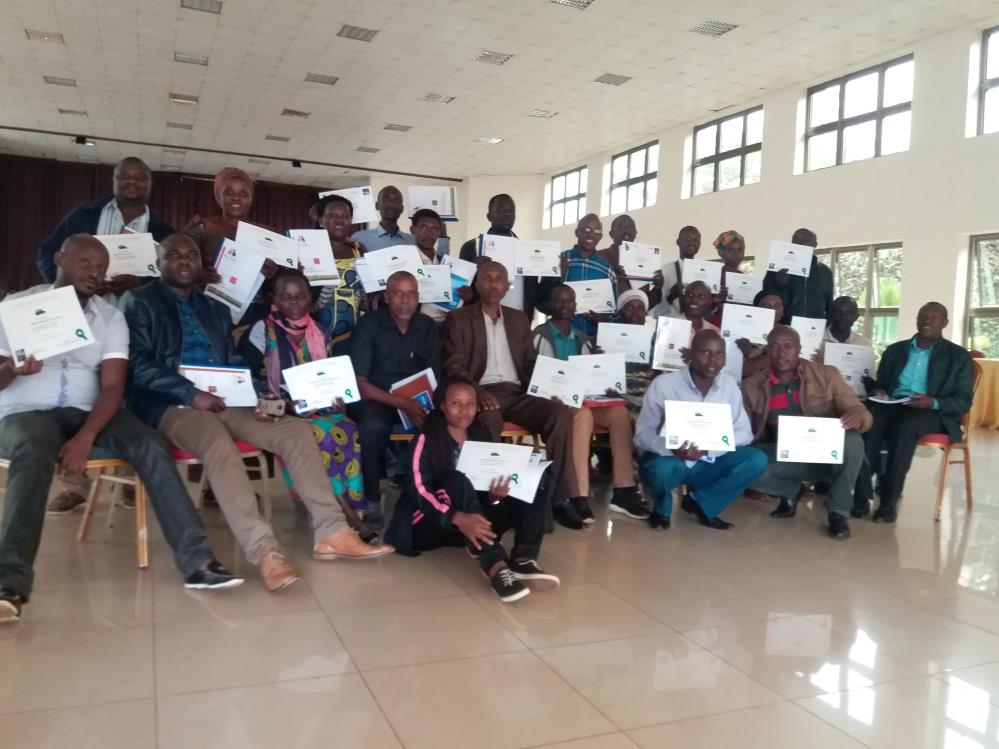Sugar cane cooperatives in Rwanda were trained on cooperative marketing and supply of farm inputs.
06-12-2019 13:47:57
“Agriculture is one of the most important sectors in Rwanda accounting for about 30 per cent of its GDP and more than 65 per cent of total employment. Yet the sector is still based on subsistence agriculture by small-scale farmers and faced by various challenges such as land degradation, vulnerability to climate disasters, low levels of productivity and weak processing and marketing capacities.” (ilo.org, 2018)
While scoping nine (9) sugar cane cooperatives [SUFACOMWO, SUFACOMA, SUFACO-NTARAMA, SUFACOKA, SUFACOMU, SUFACORU, SUFACOGA, SUFACOKI, SUFACO-RUGALIKA], it was clear that farmers’ skills and knowledge about the marketing of their products are not sharp. Farmers don’t understand well their role in making sustainable collaboration with their main buyer, whereas cane farmers don’t use many inputs in their daily farming activities. Some of the cooperative members during the 1 and 2 modules training have shown interest in doing other activities related to the input supply. To address this, module 3 and 4 of My.COOP training was conducted to help farmers be more active and increase their bargaining power toward the sugar factory.


Among the participants were the cooperative chairman, the president of the supervisory board and a manager/agronomist. In total 27 people from 9 cooperatives joined the training. Before the training, the participants expressed their expectations for My.COOP module 3. They were worried that it would be less interesting for those who aren’t involved in farm input supply. For this, we directed the module to service provision in general, which proved to make a positive difference. We adapted this module for the needs of the participants. We discussed those topics that were relevant to the group since the sugar cane cooperatives are not yet involved in farm input supply. Thus, we oriented the content more on exploring input supply as a new business for the future, while other cooperatives worked on a different service like transport, internal lending, etc. depending on the needs of the members.
Marketing (module 4) is also an element that sugar canes farmers had to pay attention to. In addition to other services they currently offer or plan to provide in the future, for them is important to know how their current marketing on sugar canes can generate more income for the members. During the training, the facilitation team used the problem-solving methodology on a marketing exercise to support the participants in the challenges they face in the value chain. The group was challenged to find solutions for hitches like; the availability of one buyer, the non-participation in setting the price of sugar canes, not having land-rights etc. Through this problem-solving exercise, it was revealed that a stable market is an opportunity which they can seize positively, get organised and use the dynamic actors to resolve challenges and influence decisions i.e., on the price.
.jpg)

Participants were open to learn and share experiences. The variety and assortment of examples adapted to the local context were highly esteemed. They appreciated a lot the methodologies used and valued the ideas that were generated from their group-works. It was also an opportunity for farmers to identify the main 3 crosscutting aching challenges which are cane price, floods and land rights and they proposed possible solutions to address them. The training made it clear to the participating cooperatives that service provision is important and that the right choice of the service is key to ensure members and non-members are using it and are willing to pay for it. The commitment of all cooperatives to improve their services to members was explicitly reflected on their action plans.


Especially for those cooperatives that were formed 3 years ago, My.COOP training has been very instructive. It is certainly recommended to keep coaching, assisting and following up these cooperatives so that they can perform their activities as planned.
Marine Umukunzi is a business advisor based in Kigali, Rwanda. She joined Agriterra in October 2016.
Managing your agricultural cooperative My.COOP training can improve and strengthen farmer organisations, as it combines all the aspects that can help cooperative leaders and managers to make the right decisions on various disciplines; Basics of an agricultural cooperative, cooperative service provision, Supply of Farm inputs and cooperative marketing.